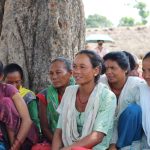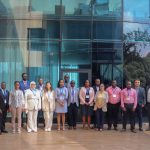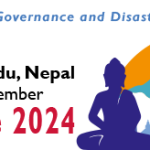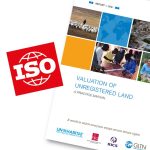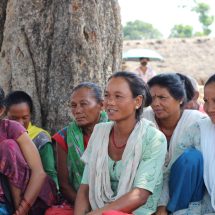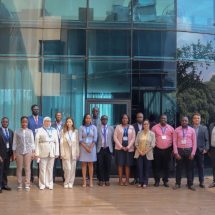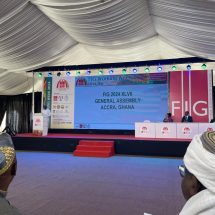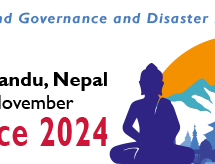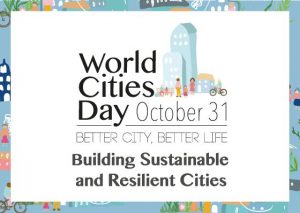 The United Nations celebrates the World Cities Day every year on the 31st of October to:
The United Nations celebrates the World Cities Day every year on the 31st of October to:
- foster the international community’s interest in global sustainable urbanization,
- push forward cooperation among countries and cities in meeting opportunities and addressing challenges of urbanization, and
- contribute to efforts on fostering sustainable urban development.
This year’s theme for the World Cities Day – Better City, Better Life – focuses on Building Sustainable and Resilient Cities. The issue of resilience – strengthening the fundamentals and capacity of people and places to cope with change – resonates with the Global Land Tool Network’s (GLTN) commitment to improving tenure security for all. As a multi-stakeholder alliance with more than 75 international partners, GLTN has committed to increase access to land and tenure security to build and strengthen resilience and sustainability with a particular focus on the poor and women.
As urban centers expand, and the effects of climate change and conflict continues, addressing land governance is becoming more critical as the demand for basic services and livelihood generation opportunities increases. Importantly, land and tenure security are becoming recognized as critical pre-conditions for fostering resilient urban centres. The significance of land for the fostering sustainable development is now a key part of the Sustainable Development Goals and the New Urban Agenda. With the large populations of urban poor often living in informal slums and settlements and sometimes in precarious areas, people’s access to land and tenure security is essential for sustainable urbanization and to fostering resilient cities.
GLTN has developed a range of land tools that are used by a variety of stakeholders including governments to solve problems and challenges in land administration and management. The tools support local communities, national governments and regional bodies in their efforts to develop and strengthen inclusive land policies and processes which can deliver tenure security for the urban poor and marginalized.
GLTN has developed, disseminated and implemented 26 pro-poor and gender-responsive land tools, 18 of which are tried and tested. These tools and approaches solve land administration and management problems such as urbanization in practical ways creating resilient and sustainable cities. GLTN’s Partner-led projects in informal settlements such as in the Philippines and Nepal for example, show that inclusive project design processes that include women and girls and the mapping of informal settlements and slums, results in powerful disaggregated data. This new knowledge helps all stakeholder develop better shelter development plans, understand basic service needs and thus help governments allocate resources. Such processes are key in places like Nepal and the Philippines whose urban centers are subject to natural disasters.
GLTN has also been working with national governments, such as in Uganda for example, supporting the development of national land policies. The GLTN approach is to ensure that policies are first informed by updated disaggregated data which incorporates the range of relationships and uses of land and considers the different relationships and experiences of men and women. Such national level land policy is a critical instrument for urban mangers to better plan and support inclusive and resilient urban centers.
The link between land and resilience cannot be underestimated. It represents both a challenge to address, but also as an opportunity for innovation and prevention. Multi-stakeholder partnerships like GLTN provide useful lessons as to the benefits of cross sector collaboration in efforts to build resilient urban centers. As GLTN moves into Phase 3 and engages with the SDG’s and the NUA, we look forward to strengthening our partnerships for upscaled impact and thus addressing the core issue of resilience within the sustainability paradigm.

